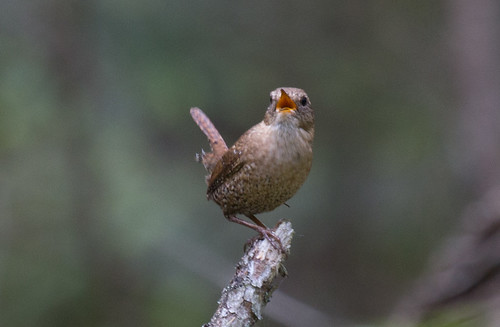I’ve been in love with William Shakespeare’s works since my 9th grade English class, when we read The Merchant of Venice. Lenore Peters, a creative and sparkling human being right out of college, brought the characters alive vividly—I can still hear Shylock’s “Three thousand ducats” in her voice. She deftly brought into our class discussions the issues of prejudice and stereotypes in Shakespeare’s world and how, if you paid attention, his characters both personified and transcended the stereotypes. Shylock’s greed was not just a stereotypical trope—it was fueled by the longstanding poor treatment he’d received at the hands of the other characters, fed by their antisemitism. And in the end, Portia was the only character knowledgeable and creative enough to use the legal system to save the day, though of course women weren’t allowed to be lawyers, so she had to dress as a man to do it. We of course knew about antisemitism back then, but I don’t remember the word sexism being in our lexicon in 1965, yet Miss Peters sure brought alive the concept of fundamental fairness in making us feel both the tragedy of Shylock and how obvious it was that in a fair world Portia would have been allowed to speak up in court as herself. As a girl whose favorite uncle was Jewish, how could I not love Shakespeare after that introduction?
Miss Peters was uniquely engaging, but my other high school English teachers also fanned the flame of my love for Shakespeare. And that love was fanned even more by my University of Illinois honors freshman rhetoric class with an existential theme, when I first read King Lear. My favorite character in the play, and perhaps in all of Shakespeare’s plays, is the Fool. He and Cordelia were the only characters brave enough to speak truth to power, and the Fool exuded integrity which somehow balanced his loyalty toward the calamitous King; he stuck with him long after he could have fled. My favorite lines are these:
That sir which serves and seeks for gain,
And follows but for form,
Will pack when it begins to rain,
And leave thee in the storm,
And let the wise man fly:
The knave turns fool that runs away;
The fool no knave, perdy.
In college as I became a passionate environmentalist and, more specifically, learned to love birds and yearned to protect them, those lines perfectly represented my firm belief that loyalty to them would far transcend my economic or social status, which is exactly why 36 years after starting to produce my radio program and now podcast, I’m still perfectly happy to do it as I always have, with no commercial sponsors or financial compensation whatsoever. And it’s also why I smile when savvy friends tell me that doing so much work for so long for nothing is foolish.
 |
| A "cream-faced" loon (immature Common Loon) |
When I attended the University of Illinois, students in most departments were required to have a liberal arts background, so after the rhetoric classes freshmen were required to take, it was easy for me, even as a math major, to take another English literature class in which we studied two Shakespeare plays, and then a course devoted entirely to Shakespeare. I wasn’t a birder yet, so a lot of the bird references went over my head. Macbeth’s rant when he called a servant “Thou cream-faced loon!” seemed vivid enough without my realizing that he was referencing loons in immature or adult winter plumage.
King Lear tells Gloucester, “Die for adultery! No: The wren goes to 't.” That also seemed self-explanatory without my needing to know the nuances of mating behaviors of the only wren Shakespeare could have been familiar with, closely related to our Winter Wren. But that line became richer when I learned how male wrens construct stick nests in as many suitable cavities as they can find, sometimes attracting two or even three mates onto their territory, and that after raising one batch of young, females often move on to find a new mate.
 |
| Common Nightingale photo by Carlos Delgado via Wikipedia |
Romeo and Juliet’s one and only argument, in the wee hours after their wedding, was about bird identification. Reading the play in college, it was clear enough that before lighted alarm clocks, knowing some bird songs would give people a rough estimate of what time it was. It seemed obvious that a bird called a nightingale would sing all night long while a lark would not. Romeo had to flee at first light, so distinguishing these bird songs was a matter of life and death, but as urgent as it was to identify the bird accurately, they argued their cases without being competitive or without Romeo mansplaining even after it was clear that he was the one who was right. When they first hear the bird, Juliet says,
Wilt thou be gone? it is not yet near day:
It was the nightingale, and not the lark,
That pierced the fearful hollow of thine ear;
Nightly she sings on yon pomegranate-tree:
Believe me, love, it was the nightingale.
(Notice that she threw in a useful hint about the bird's habitat.) Romeo argues:
It was the lark, the herald of the morn,
No nightingale…
Juliet sticks to her guns until the bird sings again. Then she blurts out,
It is, it is: hie hence, be gone, away!
It is the lark that sings so out of tune,
Straining harsh discords and unpleasing sharps.
(And notice how clear and accurate her documentation of the bird's vocalization is. That went over my head until I was a birder.)
***
It wasn’t until I was in graduate school in the Fisheries and Wildlife Department at Michigan State that I took the Shakespeare class that made the biggest difference in my personal growth and professional development. I was working toward a master’s degree in environmental education and wanted a robust background in all the “ologies”—mammalogy, herpetology, and entomology as well as ornithology—plus I was required to take a lot of environmental education and wildlife management classes in the Fisheries and Wildlife Department.
Tuition at MSU was much higher than at U of I, and charged per credit when Russ and I were living on peanut butter and jelly sandwiches and tuna noodle casserole, but something deep in my heart and soul needed to take one more Shakespeare class, so I signed up for a course taught by Randal Robinson. My advisor was distressed that I would “waste my time” on Shakespeare of all things, even after I explained to him that the whole reason we have European Starlings in America is because of Shakespeare mentioning them in one of his Henry plays. Eugene Schieffelin really did introduce them in Central Park in 1890 and 1891, but despite the articles I read back then, there isn’t any accurate evidence establishing that he or his "naturalization society" were at all focused on Shakespeare. Regardless, my advisor thought a Shakespeare class would be utterly irrelevant to my studies, and if I was going to take the class at all, he wanted me to at least take it pass/fail so I wouldn’t "waste" too much time on it. I knew I couldn’t make the class too high of a priority, but if I was going to take it at all, I was going to take it seriously, for a grade.
My previous college English classes had been excellent, but most of the instructors pretty detached and some a bit pretentious. Dr. Robinson exuded passion—for the plays and, especially, the characters. He told us that the way to get beyond the language barrier was to see the characters come alive, as Shakespeare intended, and suggested that we read along while listening to recordings by excellent actors. I’d already figured out how to negotiate MSU’s sound library to listen to bird recordings, and now I’d take an hour or so at the end of every day on campus to hunker down and listen to whichever play we were reading. To convince my advisor, and maybe even myself, that this was a justifiable use of my time when I was in a graduate program about environmental education, I always listened to a few bird songs while I was there, too, becoming more competent at recognizing bird songs even as hearing Shakespeare’s lines made them come alive.
Dr. Robinson said we’d get a better understanding of the plays by staging various scenes ourselves, which he assigned us to do in small groups. I was extremely shy and self-conscious at the time. One of the characters I had to portray was Autolycus in The Winter's Tale, a real stretch for me as I suspect Dr. Robinson knew when he assigned it. The experience was excruciating but helped me come out of my shell in a way no other class had managed. I didn't know it then, but this turned out to be essential for someone whose career would ultimately involve public speaking.
Autolycus is a high-energy character, and as we rehearsed, Dr. Robinson encouraged me to speed up my delivery and movements, but try as I might, I simply could not. He told me I had "an unusually slow body rhythm," and helped me find other ways to capture the character's intensity. That "slow body rhythm" stuck in my head. After my first heart attack in 2015, I learned that I have bradycardia, an unusually slow heartbeat. Bradycardia is not, in and of itself, a health issue and wasn't related to the heart attack, but I found it intriguing to have a medical word for something Dr. Robinson had described so long ago.
Dr. Robinson's focus on Shakespeare as living, breathing plays rather than literature was essential in my development as a writer. Even at this point in my long writing career, I wouldn't call my writing polished or elegant, but it was that course that made me focus on how my words sound spoken aloud as well as read, which I think helps my writing to be more conversational and accessible.
A few weeks ago, it suddenly occurred to me, almost half a century after I’d taken that class that so enriched my life, that I’d never thanked Dr. Robinson for everything he'd given me, so I looked him up on the MSU website. He’s retired now, but I sent him an email telling him how wonderful and inspirational his class had been. I've spent my life far from Shakespeare, writing and talking about birds, but both my life and my work are richer thanks to him. I told him that in 2004, a Rufous Hummingbird appeared at my feeder in northern Minnesota in November and left, in good health, on December 3. She was an adult female but a few stray iridescent throat feathers had people thinking she was a male for over a week, so of course I named her Viola after the protagonist of Twelfth Night, who disguises herself as a man for most of the play. I knew most people wouldn't get it, but I also knew that if Dr. Robinson ever got wind of it, he would.
Anyway, my life is much, much richer thanks to Randal Robinson, and I'm embarrassed that it took me almost five decades to thank him for giving me so very much.


